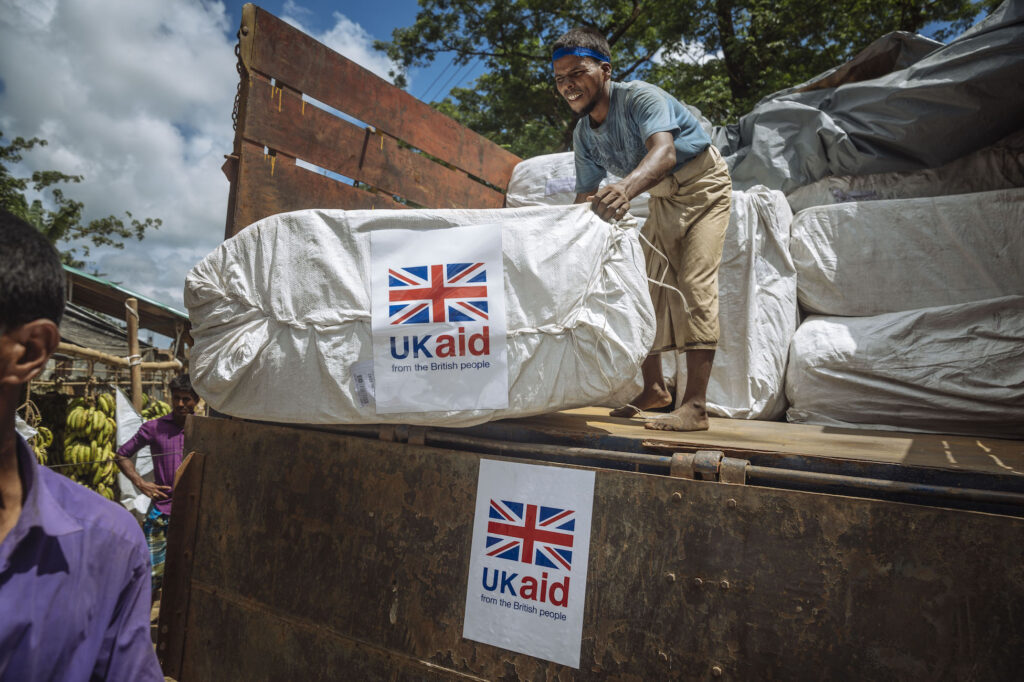In 2020, almost 300,000 women died during, or following, pregnancy and childbirth. 95% of these deaths took place in lower middle-income countries, a shocking reminder of how far the world still has to go in reducing inequality in maternal health.
The importance of a greater focus on sexual and reproductive health is clear. According to the Royal College of Obstetricians and Gynaecologists more women and girls are affected by so-called ‘benign’ gynaecological conditions than from malaria, TB and HIV/AIDS combined in low and middle-income countries.
The International Development Committee, which I chair, was determined to understand how the UK Government was addressing this challenge and what more needed to be done through an inquiry into Sexual and Reproductive Health and Rights (SRHR).
The contributors to our inquiry made it clear: things don’t have to be this way. Organisations that provide contraceptives, safe abortions, and support for maternal and newborn health have seen dramatic improvements in terms of both lives saved and women’s empowerment through cost effective programmes.


Sadly, the UK Government’s strong legacy and rhetoric on this issue has waned of late, jeopardising the health of millions of women and children in some of the most materially deprived countries on earth.
By 2021, the most recent estimates available, the FCDO had reduced its spending on this area by a third, halved its investment in Family Planning and cut Reproductive, Maternal, Newborn and Child Health (RMNCH) spend by 37% since 2019. Not only did the department slash budgets for future work, but delivered a blow to ongoing programmes by massively cutting funding of existing projects and cancelling others mid-implementation. For organisations that had planned self-sustaining change for communities, governments and health care providers over the lifetime of a project, such action significantly damaged their impact and trust at all levels.
Alarmingly, the Government has also cut its funding to multilateral organisations with track records of making gains on these challenges. The Committee heard, for example, the UNFPA was cut from an annual contribution in 2020 of £20 million to only £8 million in 2021; UNAIDS had its UK funding cut from £15 million to £2.5 million with an ongoing commitment of only £8 million annually. The Committee’s report has called on the Government to commit to defined spending levels on the development of health personnel in low-and-middle-income countries, as well as prioritising the development of health infrastructure.
Making progress on saving lives and empowering women is like a jigsaw, all parts need to fit together in a comprehensive approach that adds to the bigger picture. A lot must be done, for example, to integrate services aimed at treating and preventing HIV and AIDS with those aimed at treating and preventing female genital schistosomiasis, saving time and money.
There is also an opportunity to integrate this programming with other aid programming such as on education and on water, sanitation and hygiene. Continuing important work on preventing Female Genital Mutilation is an irreducible component of this approach.
Sadly, people with disabilities, and other groups such as the LGBTQ+ community, those living with HIV and AIDS, and people caught up in conflict or disasters are particularly vulnerable to a backsliding on commitments and their particular needs must be addressed through the Government’s programming.
To address these challenges and prevent the gains, as one witness described, “vanishing before our eyes”, the report calls for the Government to ensure SRHR programmes are accessible to all; and include marginalised and hard-to-reach people in the planning, development and delivery of programming. The Government should enable the provision of age-appropriate sex education on topics like menstruation, female genital schistosomiasis and water sanitation and hygiene to empower local populations, increase the value of aid spending and improve outcomes to make life-changing choice affecting their health.
Time and time again I heard that long-term projects with a stable and predictable funding arrangement are the key to lasting change. The Government even recognised this in its recent White Paper. So, as the Committee’s report highlights, now is the time for them to put their money where their mouth is. They must release and ringfence the crucial funding that is necessary to prevent the current crisis in SRHR programming, which needlessly inflicts so much pain on families and societies across the world.
Women and minoritised people have been side-lined for far too long, and our report is a stark reminder of the global consequences. We have a responsibility to be a leader on the world stage – the Government can and must do better than this.
Politics.co.uk is the UK’s leading digital-only political website, providing comprehensive coverage of UK politics. Subscribe to our daily newsletter here.












